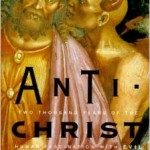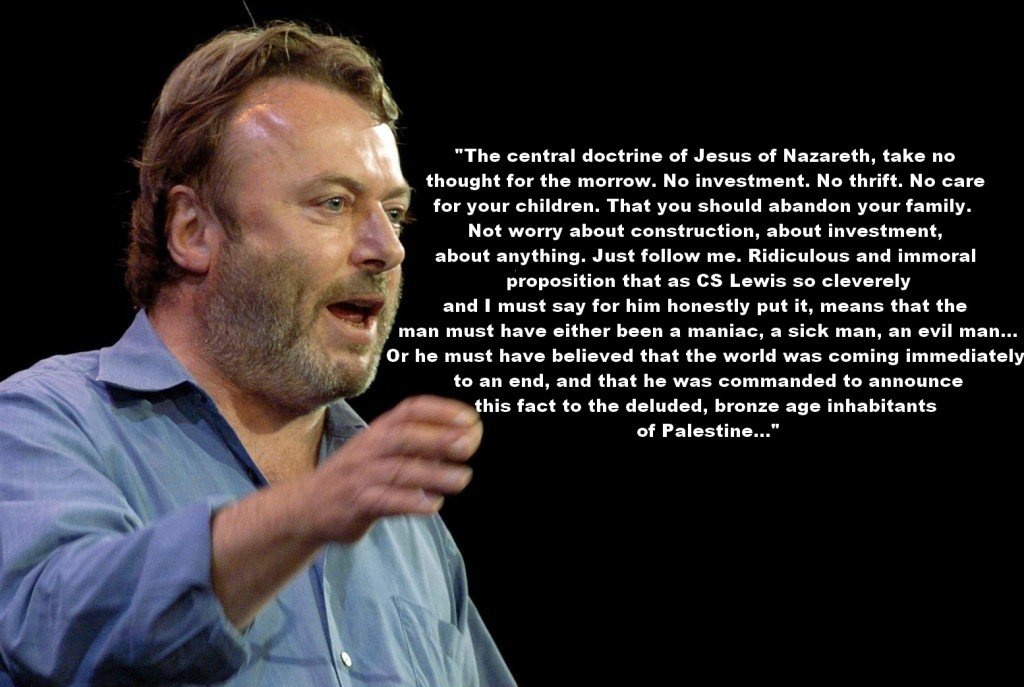
The Hitchens family is well known for its missionary positions. Christopher Hitchens was so hellbent on converting the non-atheist heathen that he didn’t stop at bending interpretations way past breaking. Nowhere is this more evident than in his fascinating (as in a car crash) book on Mother Teresa that gives this post its name.
The article “Mommie Dearest: The pope beatifies Mother Teresa, a fanatic, a fundamentalist, and a fraud” gives you a good glimpse of the interpretive pretzels he got himself into in order to make his New Atheist argument:
One of the curses of India, as of other poor countries, is the quack medicine man, who fleeces the sufferer by promises of miraculous healing. Sunday was a great day for these parasites, who saw their crummy methods endorsed by his holiness and given a more or less free ride in the international press. Forgotten were the elementary rules of logic, that extraordinary claims require extraordinary evidence and that what can be asserted without evidence can also be dismissed without evidence. More than that, we witnessed the elevation and consecration of extreme dogmatism, blinkered faith, and the cult of a mediocre human personality. Many more people are poor and sick because of the life of MT: Even more will be poor and sick if her example is followed. She was a fanatic, a fundamentalist, and a fraud, and a church that officially protects those who violate the innocent has given us another clear sign of where it truly stands on moral and ethical questions.
He’s so desperate to proselytize that he ignores the real, immense, and disproportionate difference in healthcare made by Catholics in India–as discussed here. Hitchens also forgets that Mother Teresa spent her Nobel money on homes for the poor, especially leper colonies.
I’m convinced Eagleton’s review of the Dawkins book The God Delusion, entitled “Lunging, Flailing, and Mispunching,” gets at the heart of the matter when it comes to the New Atheists on religion:
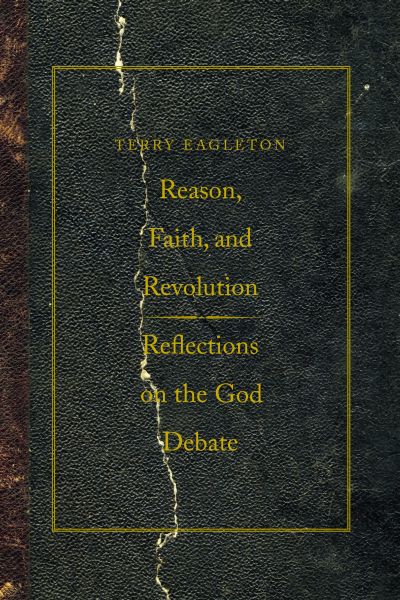
Imagine someone holding forth on biology whose only knowledge of the subject is the Book of British Birds, and you have a rough idea of what it feels like to read Richard Dawkins on theology. Card-carrying rationalists like Dawkins, who is the nearest thing to a professional atheist we have had since Bertrand Russell, are in one sense the least well-equipped to understand what they castigate, since they don’t believe there is anything there to be understood, or at least anything worth understanding. This is why they invariably come up with vulgar caricatures of religious faith that would make a first-year theology student wince. The more they detest religion, the more ill-informed their criticisms of it tend to be. If they were asked to pass judgment on phenomenology or the geopolitics of South Asia, they would no doubt bone up on the question as assiduously as they could. When it comes to theology, however, any shoddy old travesty will pass muster. These days, theology is the queen of the sciences in a rather less august sense of the word than in its medieval heyday.
Eagleton latter coined the term “Ditchkins” (a conflation of Dawkins and Hitchens) in his Reason, Faith and Revolution: Reflections on God debate to signify the collective historical and philosophical ignorance that pervades the New Atheist movement.
On the other hand, Christopher’s brother Peter is a self-styled opponent of the New Atheists and revert to Christianity. He made the following case for the revolutionary nature of Christianity during a debate on Australian TV (see the picture with text below).
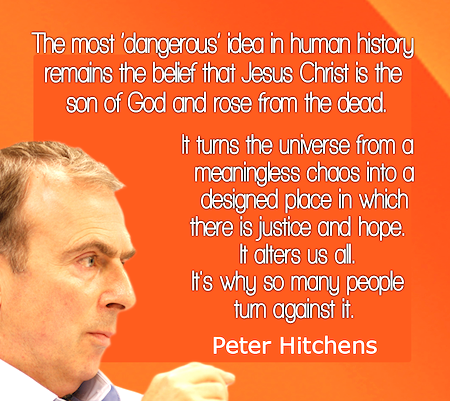
David Bentley Hart has shown how and why Christianity was a dangerous idea that transformed all areas of human knowledge in his book Atheist Delusions. This is a settled fact and you have to be willfully blind not to be aware of the reasons why.
So far so good for Peter. In order to explain where the problems arise I must provide you with a little bit of context. The second part of this statement is his answer to the question, “Why is it dangerous?” Are you confused by now? I sure hope so.
If you’ve read Remi Brague‘s indispensable study The Wisdom of the World: The Human Experience of the Universe in Western Thought then you’re probably onto what I’m about to do here. Here’s how Brague argues Christianity injected a revolutionary dose of anarchy into the ordered Greek cosmos:
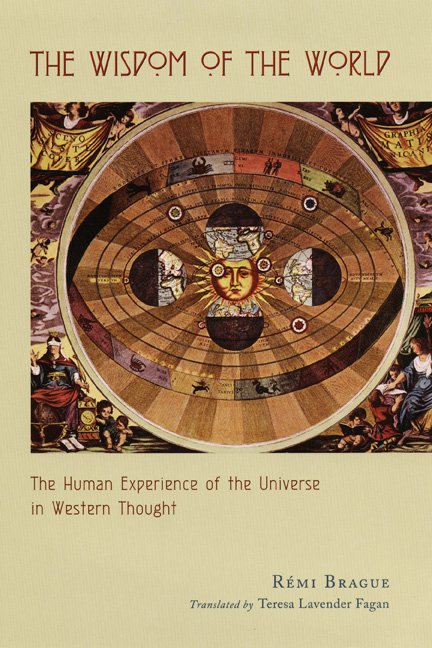
In Christianity the proximity of God acquired through the gift of the Law is replaced with an even more direct intervention, the Incarnation of Christ. This irrevocable event relegates natural regularities to a subordinate level. The relativization of the cosmos is illustrated by events within it, which are the deposits of a definitive suspension of its authority, a suspension that is still awaited. The Incarnation is thus conceived as having had cosmic consequences: the star of the Magi, according to a rather ancient legend, eclipsed the other stars. According to Ignatius of Antioch, ‘the prince of this world was unaware of Mary’s virginity and the birth of her child, as well as the death of the Lord, three resounding mysteries that were carried out in the silence of God. How, then, were they manifested to the centuries? A star shone in the sky more brightly than all the others. Its light was unspeakable. Its novelty was shocking.’
When Hitchens is contrasted with Brague and Ignatius of Antioch it becomes evident that what he says in the second part of the quote has much more in common with the cosmic harmonies of the Timaeus:
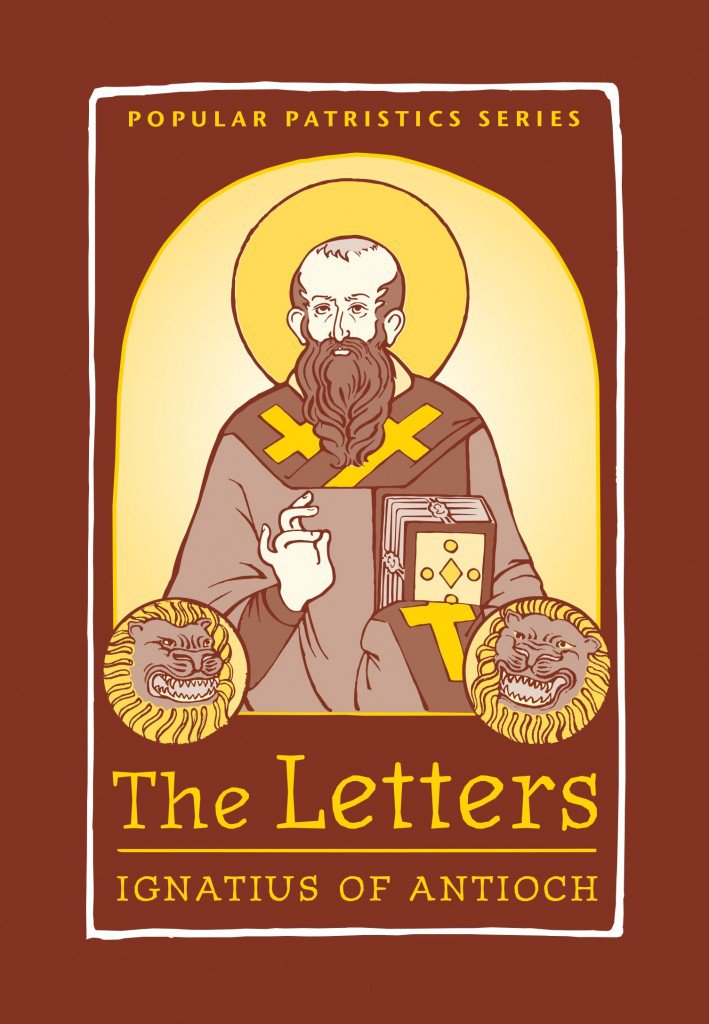
Let me tell you then why the creator made this world of generation. He was good, and the good can never have any jealousy of anything. And being free from jealousy, he desired that all things should be as like himself as they could be. This is in the truest sense the origin of creation and of the world, as we shall do well in believing on the testimony of wise men: god desired that all things should be good and nothing bad, so far as this was attainable. Wherefore also finding the whole visible sphere not at rest, but moving in an irregular and disorderly fashion, out of disorder he brought order, considering that this was in every way better than the other. Now the deeds of the best could never be or have been other than the fairest; and the creator, reflecting on the things which are by nature visible, found that no unintelligent creature taken as a whole was fairer than the intelligent taken as a whole; and that intelligence could not be present in anything which was devoid of soul. For which reason, when he was framing the universe, he put intelligence in soul, and soul in body, that he might be the creator of a work which was by nature fairest and best. Wherefore, using the language of probability, we may say that the world became a living creature truly endowed with soul and intelligence by the providence of god.
This then is how Peter Hitchens, like his brother, misrepresents Christianity in his attempt to pull off a missionary position. I suppose the apple (with Greek regularity) doesn’t fall far from the tree…
In other words, in his zeal Peter paints a fictional picture of Christianity just as his brother Christopher did. Christianity did not bring order into a disordered ancient world. It brought a certain refreshing anarchy (grace) to an oppressively ordered ancient world.
I think both brothers meant well. But you can’t rescue your readers from a delusion by peddling another delusion to them.
You’ve stuck with me this far, so you deserve a little bit of comic relief.
If you’re interested in the latest research on the relationship between religion and science and ballistics then go no further than this TOP 10 list of books on the topic.

